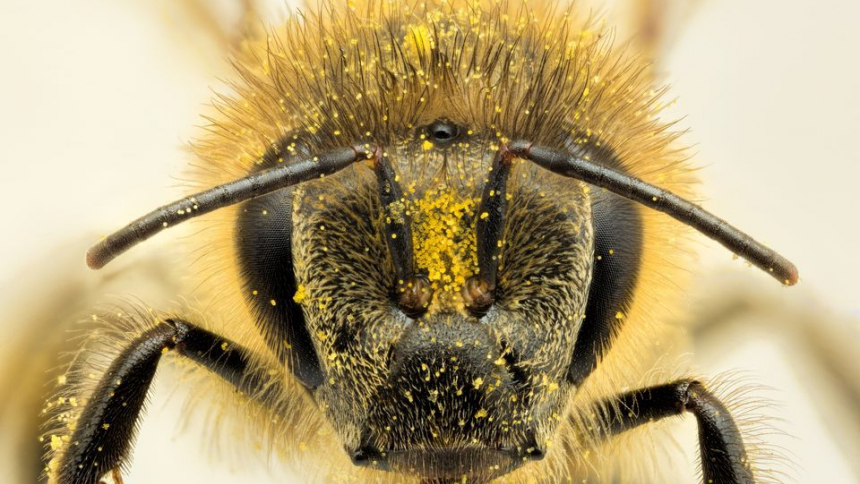Honey bees are important pollinators in the U.S., pollinating our almonds, cruciferous vegetables, peppers and a vast majority of our commercially grown fruits and vegetables. The health of honeybees however has been under siege by parasites. RNA viruses, microsporidia and ecto-parasitic mites are all thought to contribute to the observed declines of honeybees in the U.S. New work by CIDD faculty member Christina Grozinger and colleagues uses novel bioinformatics tools to identify the genes and molecular pathways upregulated during infection by common bee parasites.
Although the honeybee genome was published in 2006, deciphering which genes are responsible for immunity and understanding how honeybees respond to pathogens has been difficult. A number of transcriptomic studies have looked at gene expression in response to pathogen-challenges, but an abundance of data without good bioinformatics tools to interpret the data left researchers in the dark as to which genes and pathways were actually responsible for honeybee immunity. Grozinger and Vincet Doublet, lead author of the new study published in BMC Biology, worked with colleagues to develop a bioinformatics tool known as directed rank-product analysis to help tease apart the genes involved in honeybee immunity. This approach allowed the researchers to compare the transcriptomic data from 19 different data sets to identify commonalities in gene expression in bees with and without infection. The results identified key genes and pathways that are triggered by infection in honey bees and appeared to be similar across different types of pathogens. The work paves the way for future development of pathogen-resistant lines of honeybees and helps researchers better understand the consequences of infection in honey bees from a molecular perspective.
The original article was published in BMC Biology on March 2 and can be found here.
Synopsis written by Jo Ohm
Publication Details
Doublet, Poeschl, Gogol-Döring, Alaux, Annoscia, Aurori, Barribeau, Bedoya-Reina, Brown, Bull, et al.
Unity in defence: honeybee workers exhibit conserved molecular responses to diverse pathogens
Journal: BCM Genomics
DOI Reference




